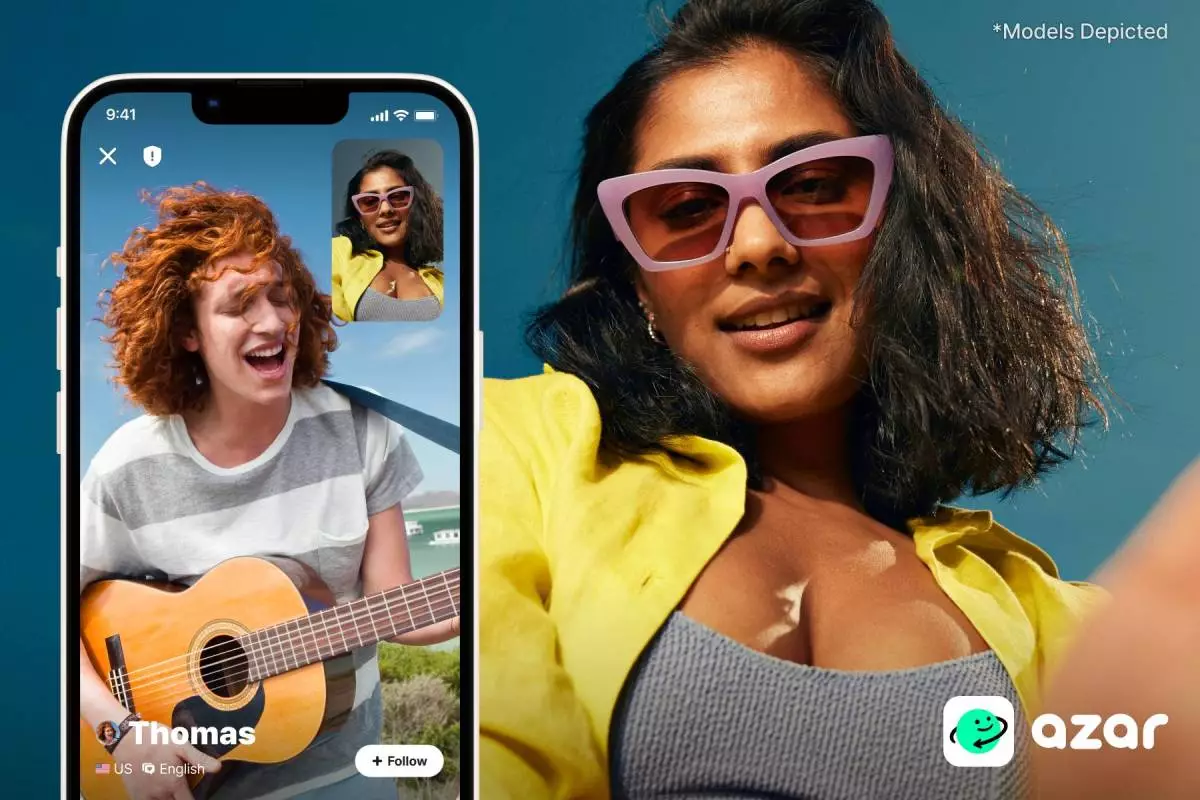In a digitized world craving connection, the rise of video chat apps has captivated various demographics seeking spontaneous conversations. Among these tools, Azar has emerged as a notable contender, facilitating over 100 billion video chats globally. However, as it now strives to enter the U.S. market, the app faces monumental challenges pertaining to consumer perception and the historical pitfalls of similar platforms.
While Azar may currently be sailing smoothly with a predominantly Gen Z user base, the waters have not always been so welcoming for random video chat applications. Previous ventures like Omegle and Chatroulette left a mixed legacy riddled with inappropriate content and unsettling encounters. Users often recounted stories that turned what was intended for casual fun into a realm of unintended horror—encounters with indecent exposure or unsolicited behavior that led to their reputations as misguided social experiments. Even with Omegle dismantled last year following legal disputes over sex trafficking, the shadow of these past experiences looms large over any new entrants in the market.
Yet Azar, owned by Match Group—a powerhouse behind dating giants like Tinder and Bumble—seeks to tread carefully where others have stumbled. The company employs rigorous moderation strategies to ensure a safer usage environment, employing a blend of artificial intelligence and human oversight. Linda Kim, the CEO, emphasizes the company’s commitment to maintaining safety. Upon detecting suspicious behavior or inappropriate content, their automated systems alert human moderators for swift action. This effort to create a secure space is crucial for establishing trust and building a reputation in a market still wary of the pitfalls of its predecessors.
The distinctive features of Azar serve to set it apart from its predecessors in the random video chat landscape. Unlike Omegle’s chaotic and often unregulated nature, Azar’s structure facilitates meaningful interactions even when common language serves as a barrier. Through its built-in text translation feature, users from diverse backgrounds can still connect and converse. This adds a layer of inclusiveness to the platform, appealing to users who may appreciate broadened horizons in their social interactions.
Kim’s journey from Apple to leading Azar demonstrates a wealth of experience that positions her well to tackle these challenges. As she engages with users—sometimes anonymously to gain genuine insights—her involvement highlights an authentic commitment to understanding the desires of the user base. This hands-on approach fosters a brand image that aligns with the expectations of a generation increasingly characterized by the need for human connection amidst the often isolating nature of modern life.
One key undercurrent driving the popularity of platforms like Azar is the significant problem of loneliness, particularly among younger populations. Studies indicate that members of Generation Z, despite their reputation for being constantly connected through social media, are grappling with increased feelings of isolation. Social applications that cater to this demographic are not merely promoting entertainment; they are fostering environments where authentic conversations can blossom in real-time, bridging the emotional gaps felt by many.
Notably, industry voices, including Amy Wu from the mental health app Manifest, argue that tech solutions will emerge to combat this loneliness epidemic by focusing on community and connection. Azar positions itself within this discussion, not only as a video chat platform but as a potential salve for a societal issue that has only intensified in contemporary life.
As Azar prepares to launch more fully within the U.S. market, several hurdles remain. The app must work diligently to transform any residual skepticism into acceptance. Highlighting safety features should be at the forefront of their marketing efforts, with transparency in moderation practices fostering user confidence. In the face of negative historical narratives surrounding random video chat apps, Azar has the opportunity to redefine the conversation and reshape perceptions through its dedication to user safety and community building.
Ultimately, if Azar can leverage its innovative technology alongside a steadfast commitment to user safety, it stands poised to carve out a distinct niche in a competitive landscape. The ascent of random video chats could very well usher in a new era of connection—one built not on random encounters, but on genuine, meaningful interactions that heal the loneliness experienced across society. By embracing these values, Azar is not just another app; it could become a catalyst for change in how we navigate social connections in the digital age.


Leave a Reply